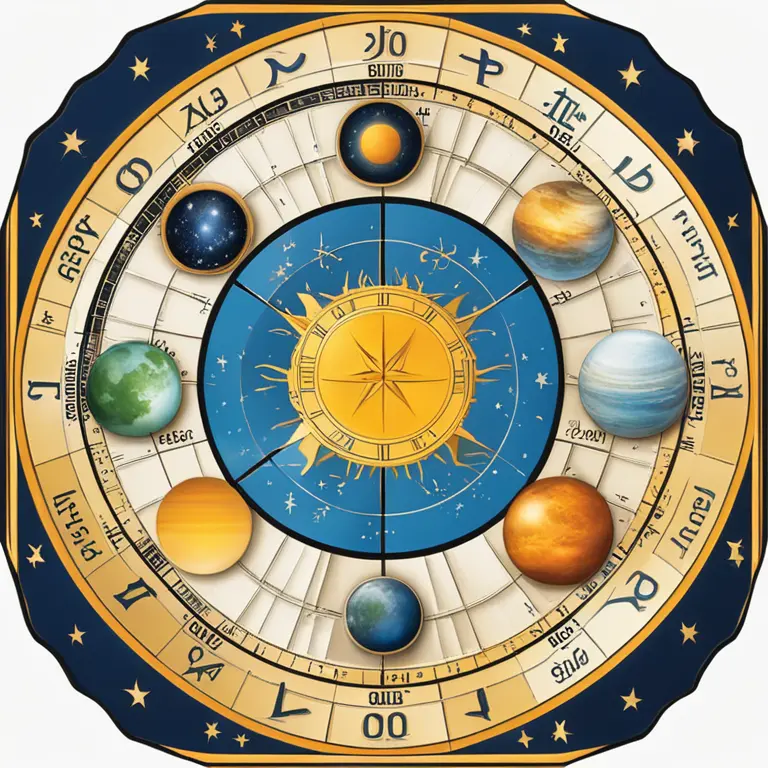
Astrology Debunked: The Myth of Starry Predictions
Examining the validity of astrology and why it may not be the reliable guide to life's decisions as popularly considered.
article by Priya Deshmukh
The Science Perspective
With the increasing access to information in 2024, the scrutiny over unfounded practices becomes more rigorous. Astrology, the belief that the positions and movements of celestial bodies have a direct impact on our lives, has been a topic of contention. The scientific community collectively agrees on the lack of empirical evidence supporting astrology. Researchers continually point out that numerous studies have discredited any correlations between the stars and human affairs. In essence, from a scientific standpoint, the purported mechanism of astrology fails to hold water, as it does not adhere to the principles of testability, falsifiability, or reproducibility.

Historical Inconsistencies
Astrology, with roots stretching back to ancient times, has evolved differently across cultures and epochs. These inconsistencies in astrological methods throw their reliability into question. The zodiac system, which is a keystone of Western astrology, has shifted due to the precession of the equinoxes, meaning that the zodiac signs used today do not align with the actual constellations as they did millennia ago. The fact that astrological interpretations vary widely and are often tailored to specific societies reflects more about human culture than about any universal truths dictated by the stars.

Psychological Bias and Astrology
Astrology enthusiasts often experience confirmation bias and the Forer effect (or Barnum effect), both of which contribute to the belief in horoscopes. Confirmation bias is our tendency to remember information that confirms our preconceptions and forget or minimize that which doesn't. The Forer effect describes how individuals find vague, generalized statements highly accurate for themselves because they desperately want them to fit. These psychological biases are potent and pervasive, leading many to believe in the accuracy of astrological statements without solid evidence.
Statistical Relevance and Predictions
For astrology to be considered valid, astrological predictions would need to prove consistently more accurate than chance. Statistical analysis has debunked astrology time and again. When astrologers' predictions are subject to rigorous statistical tests, their accuracy does not surpass random chance or standard psychological advice. Moreover, a significant portion of predictions made under the guise of astrology are conveniently non-falsifiable, meaning they cannot be proven wrong, hence evading scientific verification.
Lack of Uniformity in Readings
Astrology lacks standardized interpretations, leading to discrepancies and contradictions among different practitioners. If astrology were based on a legitimate system, then all astrologers should, theoretically, provide similar readings under similar circumstances. However, this is seldom the case, as astrological analyses are subjective or intuitive to the interpreter, which ultimately dispels the illusion of astrology being a precise and calculable methodology.
Cultural Shifts and Astrology's Role
As society advances, with a growing emphasis on evidence-based practices, there is a noticeable shift from reliance on anecdotal beliefs like astrology to data-driven decision-making. The increasing reliance on technology, artificial intelligence, and machine learning for predictions illustrates a clear preference for statistically and scientifically sound practices, underscoring the waning legitimacy of astrology in contemporary thought.
Published: 2/13/2024
Modified: 2/13/2024
More predictions
Come back here soon to learn more about yourself and your future


Mastering Tarot Basics: A Beginner’s Guide
Embark on a journey into the art of tarot reading with our beginner’s guide, covering fundamental concepts and practical how-to steps.


The Moon Tarot Card: Insights and Meanings
Delve into the profound symbolism and astrological implications of the Moon Tarot card for guidance and personal reflection.


The Tarot Card Deck: A Gateway to Mystical Insights
Discover the tarot deck's rich symbolism and its role in personal growth and foresight. An insightful guide to the power of tarot cards.